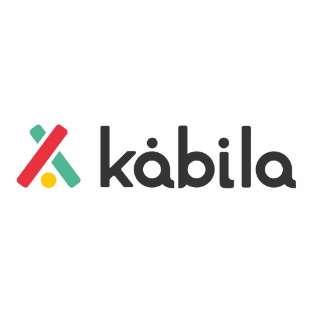
Bonzo Finance
Bonzo Finance is an open-source, non-custodial lending and borrowing protocol built on the Hedera network. It is a fork of the popular Aave v2 protocol and is designed to serve as "The Liquidity Layer" for the Hedera DeFi ecosystem.
The core of Bonzo Finance's service is its decentralized platform that allows users to lend and borrow a variety of cryptocurrencies, with a focus on HBAR, native USDC, and other Hedera ecosystem assets. Users supply crypto to the protocol to earn interest, provide liquidity, and as collateral for loans.
Bonzo Finance also offers "flash loans," which are uncollateralized loans that must be repaid within a single transaction. It has its own governance token, $BONZO.
Bonzo Finance is built on the Hedera Smart Contract Service, and it is designed to be fully compatible with the Hedera Token Service (HTS). It also utilizes the Hedera Consensus Service (HCS) for its verifiable points and rewards program.
Project Information
Related Projects

IDEMIA is a multinational technology company specializing in identity and security solutions. Headquartered in France, the company provides a broad range of products and services to clients in over 180 countries, including governments, enterprises, and financial institutions. Its core mission is to enable citizens and consumers to interact, pay, connect, travel, and access public or private spaces securely in both the physical and digital realms.
Leveraging deep expertise in biometrics including fingerprint, facial recognition, iris recognition, cryptography, and artificial intelligence, IDEMIA develops solutions across three primary divisions: secure transactions, public security, and smart identity. Related offerings include secure payment technologies and card issuance, connectivity solutions for mobile operators and IoT devices, and the creation of physical and digital identity credentials such as passports, ID cards, and mobile IDs. Furthermore, IDEMIA provides systems for border control, public safety, and access control.
The company's solutions are integral to numerous critical activities, from facilitating secure financial transactions and ensuring trusted communication networks to managing citizen identities and securing travel and public spaces.

Wallawallet is a dedicated mobile cryptocurrency wallet designed to provide a secure and stable experience for users of the Hedera Hashgraph network. It was developed by Ledgerama with a core mission to offer robust management for HBAR, Hedera's native cryptocurrency, and Hedera Token Service (HTS) tokens. With an emphasis on security, it operates as a non-custodial solution ensuring users maintain complete control over their private keys, which are stored directly on their mobile devices. To further enhance security and minimize attack surfaces, it intentionally forgoes a web interface, focusing on a dedicated app environment for iOS and Android.
Key features of Wallawallet include seamless sending and receiving of HBAR and HTS tokens, along with integration for Ledger hardware wallets, allowing users to combine the convenience of a mobile app with the enhanced security of cold storage. It also incorporates functionality to support the Hedera ecosystem with features to help users associate tokens in preparation for airdrops, including HBAR-weighted airdrops.

Kabila is a Web3 platform designed to empower digital creators by providing a comprehensive suite of tools for building and managing their own tokenized communities. Its mission is to simplify the process of launching a creator economy, making it accessible to a wide range of individuals and brands.
The core of Kabila's service is its no-code platform, which allows users to create and manage their own DAOs (Decentralized Autonomous Organizations), NFTs, and social tokens. The platform provides a full suite of tools for community engagement, including features for creating token-gated content, launching NFT collections, and managing governance proposals. This allows creators to build and monetize their communities without needing any technical expertise. The platform also includes a social feed and other tools to foster direct engagement between creators and their fans.
Kabila is built exclusively on the Hedera network. This integration is central to the platform's ability to offer a scalable, secure, and low-cost solution for its users. Kabila utilizes the Hedera Token Service (HTS) for the creation and management of all NFTs and social tokens, and the Hedera Consensus Service (HCS) to provide a transparent and auditable record of all DAO voting and governance activities.

ValueNature is a South Africa-based organization working to create a new class of nature-based commodity credits. The company's mission is to accelerate the recognition of nature's value by creating a transparent and efficient market for biodiversity and natural carbon credits.
ValueNature's core service is the facilitation of nature-based investment projects. They are actively developing projects across the Global South that are designed to generate both biodiversity and carbon credits. The company's methodology involves using a combination of on-the-ground sensor technologies and remote sensing data to measure and verify the positive impacts of these projects on local ecosystems. The goal is to create a robust and evidence-based system for quantifying and valuing nature, with a commitment to ensuring that 80% of the revenue from the sale of credits goes back to the local custodians of the land.
ValueNature is building its platform on the Hedera Guardian, an open-source toolset for creating and managing digital environmental assets. This allows for the tokenization of their biodiversity and carbon credits, creating a transparent and auditable record of their entire lifecycle.
